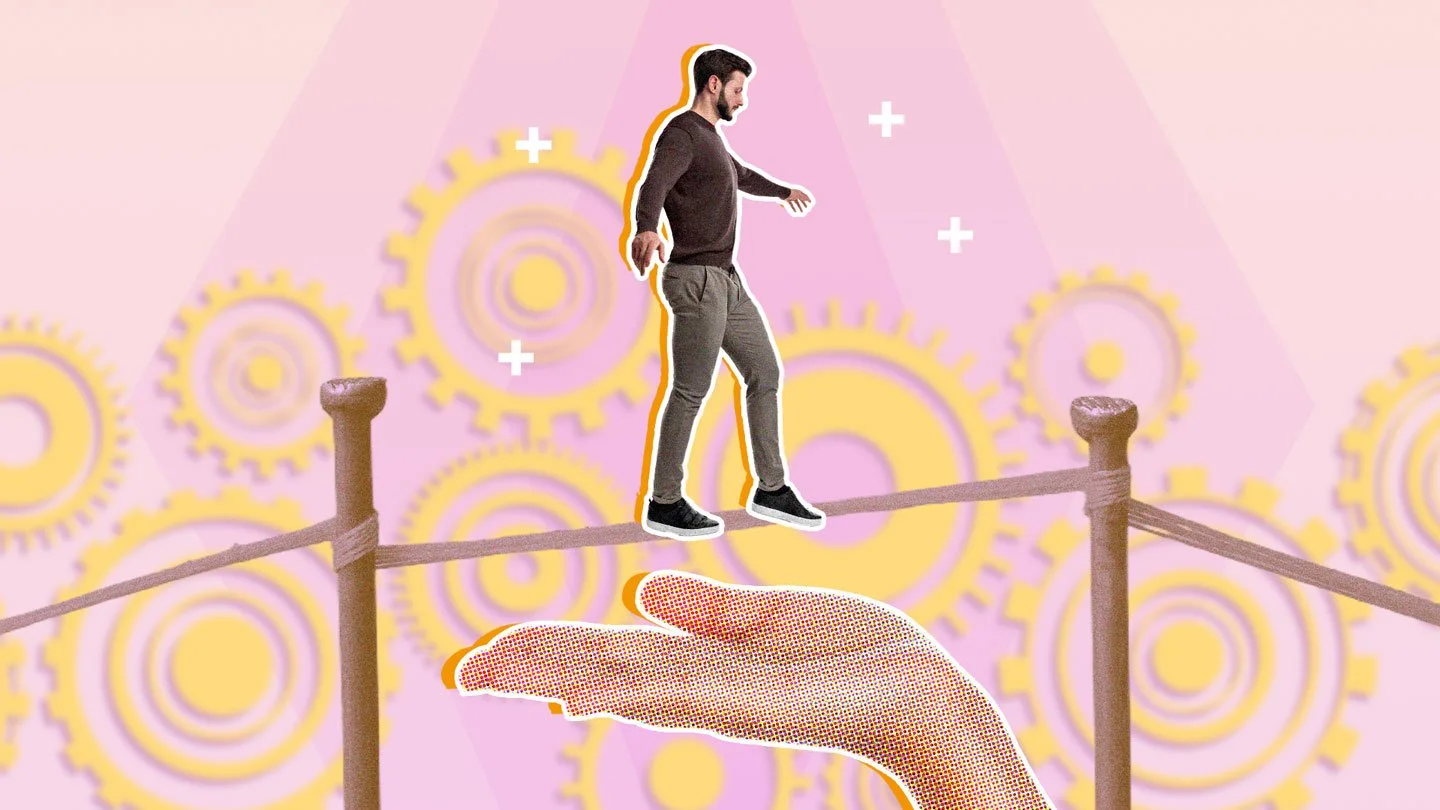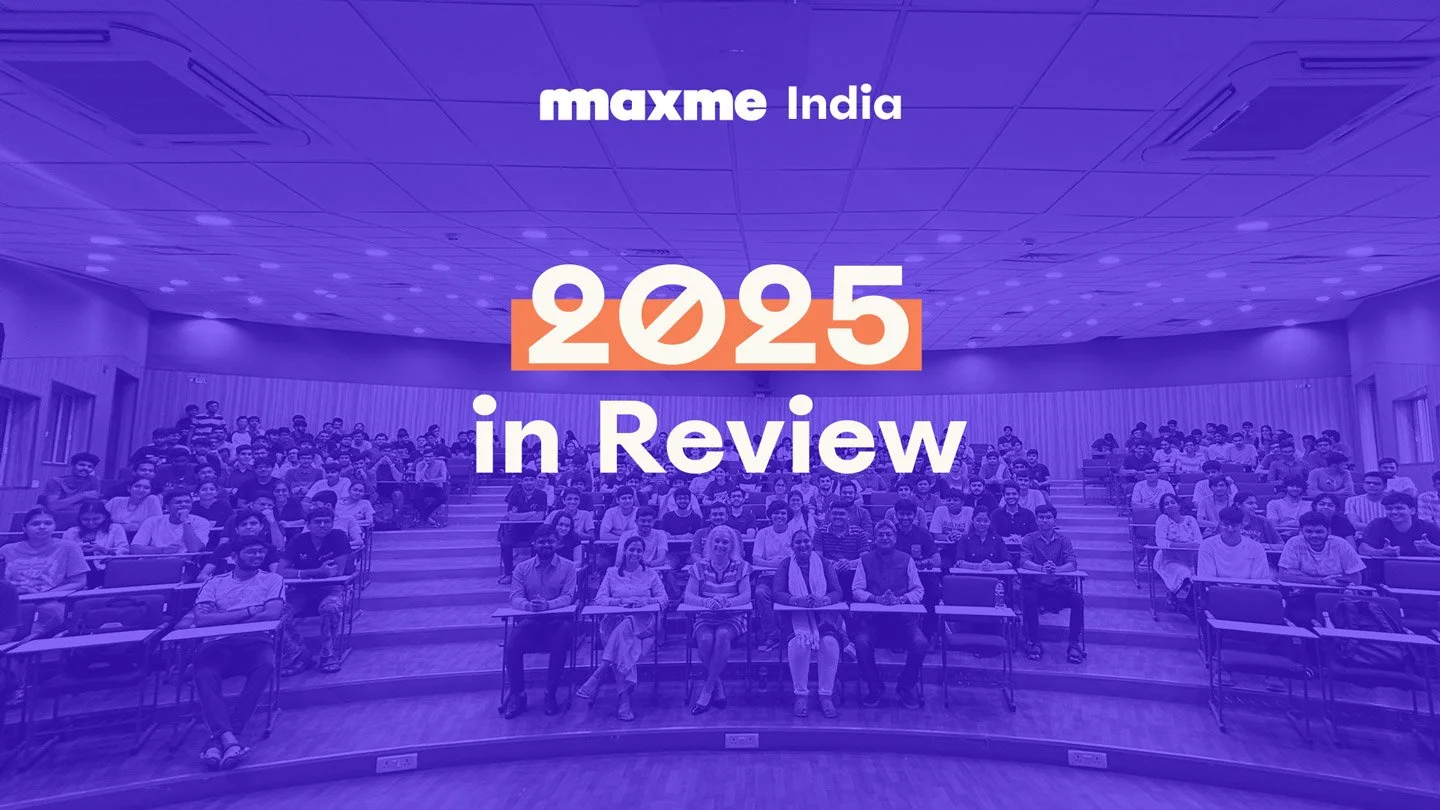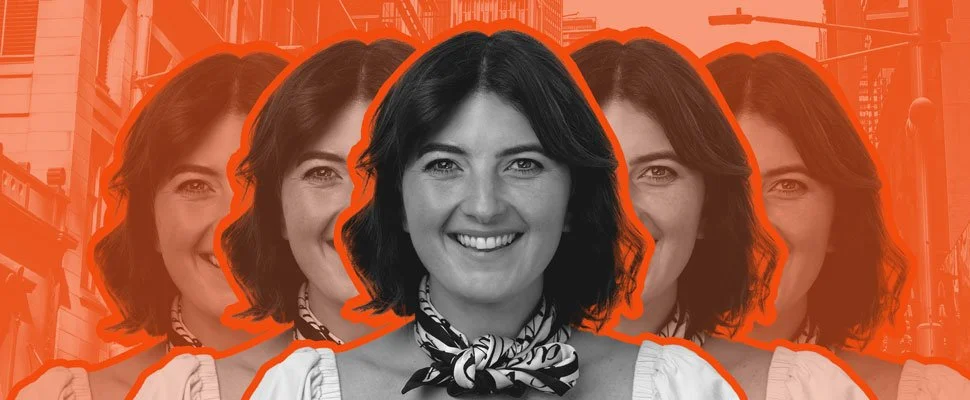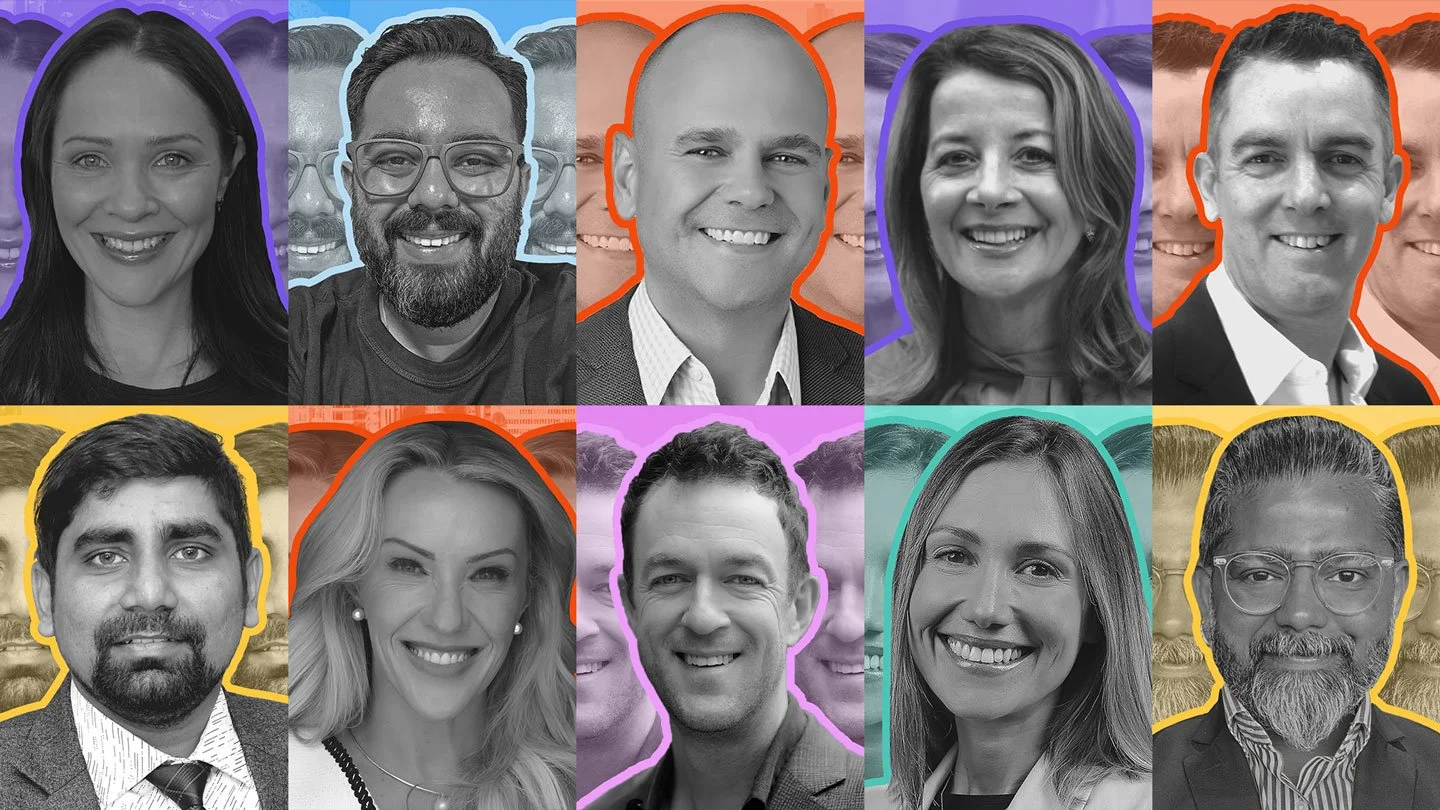Human on the Inside with Elemental Coaching & Psychology’s Kate Connors
Human on the Inside. We’re big believers in the power of human skills. But don’t just take our word for it - the evidence for excellence powered by human (‘soft’) skills is everywhere! In this engaging, ever-enlightening series, we speak with industry leaders, innovators and game-changers to learn a little about their personal career journeys, and how human-led strategies, philosophies and cultures are proving a force for good in their working worlds …
Maxme: Welcome Kate, and thanks for stepping into the #SuccessIsHuman spotlight. You’re Chief Mental Health Adviser | Executive Coach | Principal Psychologist of Elemental Coaching & Psychology - a consultancy you established in October 2023.
In 1 sentence (ok, we’ll give you 3), what does your role entail?
Kate Connors: My role is to be of service to leaders, and their organisations, as they aim to be their best version of themselves. I guide, support, advise and design interventions to reduce the detractions, and importantly increase the protective factors that create sustainable wellbeing and mental health. There is a substantial amount of noise in the workplace mental health & wellbeing sector - my role is to help cut through the noise and bring clarity to best next steps, for leaders at an individual level, and organisations at a systems and strategic level.
M: While Elemental Coaching & Psychology has been your career focus for the last year or so, the most recent role held prior to this was quite a biggie - Chief Mental Health Officer at PwC Australia. There you provided confidential wellbeing and mental health support to over 800 partners across Australia. Joining the Firm at the start of 2015, your 8 year tenure started in a Director position (Partner Wellness & Coaching), followed by four and a half years as Head of Mental Health & Wellbeing.
Your impressive 25 year career in executive mental health & wellbeing, coaching and workplace mental health of course extends right back to 1999. Kicking off with 4 years as an Education Officer for WorkCover WA, you followed with 2.5 years as a Senior Consultant for Prime Corporate Psychology Services. You then clocked 7.5 years with APM - a health and human services company of more than 14,500 people in 11 countries, as National Manager of Psychology Services. After a couple of years consulting independently, you joined Assure Programs as COO, and progressed to CEO just 12 months later.
Alongside all this great work, you’ve been a Member of the Board with Wear for Success (June 2014 - October 2016) and are currently part time Board Member and Chair of the Mental Health Advisory Group for the Emergency Services Foundation.
How does all this work speak to your personal purpose and what drives you as an individual?
KC: The key driver of my career has always been to honour and elevate people’s understanding of the role that work plays in the human experience of mental health & wellbeing. Understanding the connection between work and wellbeing had started, but was somewhat in its infancy (maybe in mid-primary school years!) when I started my career in the early 1990s. The workplace wellbeing science has evolved exponentially over that time, and is now closely aligned to organisational effectiveness and high performance research - meaning my personal purpose and what drives me as an individual is now in the top 5 of priorities for most CEOs - not only “because it’s the right thing to do”, but also because of the demonstrated commercial benefits of getting it right.
We spend between a quarter and a third of our lives working - that is a powerful data point when we also consider that we spend a third of our lives asleep!! Spending my working life elevating the level of understanding about what factors boost versus what factors detract from mental health & wellbeing during these hours is incredibly meaningful to me.
M: Tell us a little about your personal education pathway/s - what led you to where you are now? How closely do your formal qualifications match your current career?
KC: I completed my tertiary entrance exams at high school, and the subsequent year commenced a Bachelor of Applied Science (Psychology) at Curtin University in Perth, WA. On completing this undergraduate course, I was then accepted into the Postgraduate Diploma of Psychology (Rehabilitation Counselling). This was the necessary “fourth year” of university study to enable me to complete my registration as a psychologist via a two-year supervision pathway while I worked as a provisionally registered psychologist. Within 5 years of completing my supervision and becoming a fully registered psychologist, I decided to return to Curtin University to complete my Masters in Psychology (Counselling).
These qualifications were all pivotal for my career. When I graduated from my Postgraduate Diploma, I worked within organisational psychology settings and contexts. The combination of my work experience with formal qualifications provides me with a unique skill and experience set, and has given me a deep understanding and capacity to lead and influence across the three pillars of an integrated approach to workplace mental health (prevent harm, mitigate illness, promote thriving).
M: If you could share one piece of career advice to your 21 year old self it would be ...
KC: Keep enjoying being the least experienced person in the room for as long as possible!
When I first started my professional career, I was the only “graduate level” psychologist and I worked within a team of exceptionally experienced health professionals. They were all wonderfully nurturing and supportive of my learning and development - that environment was an absolute gift. I loved it at the time, and remember as my career unfolded and I was no longer “the least experienced”, that I missed the times when my ego and fear of “not knowing” didn’t get in the way of asking questions and soaking up other people’s wisdoms!
Starting your career accepting you have lots to learn, and being excited (not fearful or defensive) of that prospect, is advice I would share with any 21 year old.
M: Maximising the potential of individuals, communities and businesses through the power of human skills is the reason Maxme exists. Can you tell us a little about the role and / or value of human skills in your workplace or industry right now?
KC: With our society’s loneliness epidemic, and the reality that mental illness creates the highest health burden in our community, human skills have never been more important than they are right now. Despite the intrigue and amazing outcomes and efficiencies that AI and other forms of technology bring us, the unintended consequence is a reduction in “basic” human to human skills.
Dealing with the inevitable and profoundly important insights and issues that surface in moments of conflict; connecting with people’s hearts and minds through paraphrasing, clarifying, probing, storytelling and inspiring skills; sitting with the full range of human emotions (not just the positive emotions!) to build trust and cultivate connections and meaningful solutions...I could go on!!
My greatest fear is that workplaces (and then by consequence leaders) lose their focus on the fundamental necessity of maintaining our humanity - so I feel passionate and purposeful about the value psychologists/coaches and workplace mental health specialists can provide right now.
M: Self Awareness sets the critical foundation for all Maxme learning experiences. With that said … what’s your strongest trait / personal super power?
KC: Authenticity. I don’t have different versions of myself for different contexts - there is one Kate Connors, and she’s the one that shows up (for better or worse) in any conversation or environment.
That comes with some shadow impacts - no doubt. But all in all, the people I have led, worked with, or clients I have served, all tend to describe this quality as a strength that stands out and builds trust, rapport and connection. Then - anything is possible!
M: And on the flip side, what’s one human / ‘soft’ skill you’ve had to really work on improving over the course of your career?
KC: Not cutting people off mid-sentence with my own thought / affirmation / encouragement that builds on or aligns with what someone is saying! In my excitement to connect, I do that!! I don’t tend to do it as much when I disagree with what someone is saying (I think!) - which I hypothesise is because I am not as comfortable in conflict as I am in agreement.
A common challenge for extroverts - and one I continue to observe and work on for myself.
M: If you could share one piece of career advice with recent Uni graduates or candidates keen to work in a field like Executive Psychology & Wellbeing Consulting, what would it be?
KC: The skill sets for executive mental health support and workplace wellbeing are aligned, but not the same. Both require a deep understanding of the complexity of factors that boost and detract from mental health & wellbeing - and both require that knowledge at individual and organisation / systems levels. So one piece of advice would be to develop a deep understanding of those factors.
For those more interested in the 1:1 work with executives - then building your tool box to include a diverse range of capability in evidenced based individual interventions. And for those who are keen to explore workplace wellbeing consulting - making sure you meet an organisation where it is at on the maturity curve, yet also educating the decision-makers on reducing the gap between “how it looks versus how it is” for their people as being a great place to focus.
M: You’ve been granted approval to add one University graduate to your business, but have 100 applicants, all with outstanding academic results. How do you find your perfect candidate - what are you looking for?
KC: I look at the current skills, diversity and capability mix of my current team, and look for someone to fill the gap. I also look for someone who has a track record of “playing well with others” in teams. The ability to get along with other people, listen, compromise, respect others and have a laugh along the way goes a long way!
M: In the words of John Dewey, “education is not preparation for life, education is life itself.”
What’s next on your #learning agenda?
KC: I have a passion for supporting leaders - so they can be the leader they want to be as they support others. I have noticed that organisations are often not creating the “leadership systems” to enable this, which creates significant pressure on leaders, as well as a profound sense of incongruence and impact on their sense of integrity.
Leaders I work with, want to “be great leaders” but don’t feel enabled to be the leaders they want to be. I am learning more about the concept of “moral injury” - the psychological, social and spiritual impact that happens to people when they feel their own moral beliefs and values have been betrayed or transgressed - in my commitment to be of better service to leaders.
The research into this area of human psychology has been building in recent years, and I am very keen to build my knowledge, understanding and expertise. As one of my mentors once said to me: “Kate, the work is never done!”
Ready to develop the human skills within your organisation, team or self? Explore our menu of Maxme Products & Programs or simply download the Hodie app to get started today.
Prefer to talk through your options? Simply contact us at any time.









